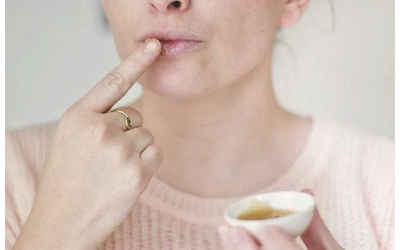What are Cold Sores?
A common viral infection is cold sores — also called fever blisters. They are small blisters overflowing with blood, on and around the lips. Sometimes these sores are divided into patches. A scab form just after blisters split and can last for many days. Cold sores usually heal within two to three weeks with no scar left.
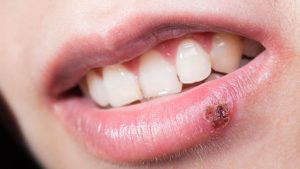
Cold sores spread through close contact from person to person, for example kissing. Generally, they are caused by type 1 herpes simplex virus (HSV-1), and less commonly, type 2 herpes simplex virus (HSV-2). These two viruses can impact your mouth or genitals, and also can spread through oral sex. Hot sores are infectious even though the sores aren’t noticeable.
Cold sores are not cured but medication may help control outbreaks. Antiviral prescription pills or creams can help the sores heal faster. And they can decrease the frequency, duration and intensity of potential outbreaks.
Best Treatments of Cold Sores
When in an outbreak you can get several patches of cold sores. At present there isn’t a definite cure for herpes simplex virus of any kind which is the source of cold sores. It can recur some time after an outbreak heals. The best time to start treating a cold sore is when you’re feeling tingling or scratching around your mouth. Such signs may occur a few days before blisters show up.
1. Propolis
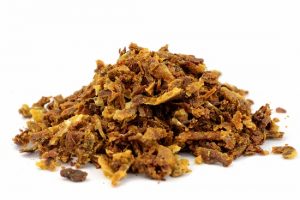
Propolis is a resin substance which bees collect through botanicals for use in their beehives to seal crevices. Propolis is rich in antioxidants, and believed to be antiviral. Studies has shown that propolis can prevent a replication of the herpes simplex virus. An ointment examined on rats and rabbits made of 5 per cent propolis enhanced outcomes of active HSV-1 infection by having prevent symptoms in rats and rabbits, according to a 2002 report published in Israel Medical Association Journal . his is essential for human use in a concentration of 3 per cent.
2. Lysin
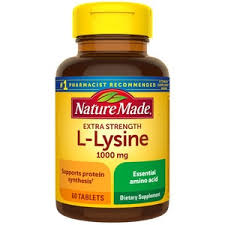
Lysine is an amino acid which may aim to minimize the more active actives of herpes simplex virus. Lysine tablets can reduce the amount and severity of herpes simplex virus outbreaks according to an older study from 1987 published in the pubmed. Even lysine can help to reduce recovery period. Lysine research for cold sores is not definitive, so speak to the specialist before you use it to cure a cold sore.
3. Rhubarb and Sage

A topical cream made of rhubarb and sage can be as efficacious in curing cold sores as the antiviral drug acyclovir (Zovirax) in topical cream form, according to a 2001 study. The study found rhubarb and sage cream in 6-7 days had helped recover a cold sore. Healing time was 6 days with acyclovir cream and healing time was 7.6 days using sage cream alone.
4. Licorice Root
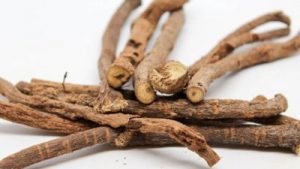
Study has shown us that the root of the licorice is anti – bacterial and antiviral. Its antiviral characteristics help prevent the replication of viruses while its antibacterial properties impede bacterial activity. The same research found that antifungal activity was demonstrated in licorice. Cold sores are treated with topical licorice root cream.
5. Zinc
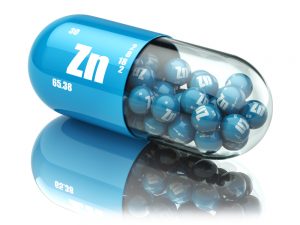
Topical cream with zinc oxide can reduce the cold sores. In a 2001 report, zinc oxide-treated cold sores got cured one-and-a-half days earlier than placebo-treated sores. Zinc oxide even minimized blistering, scratching, soreness and tingling.
6. Lemon Balm
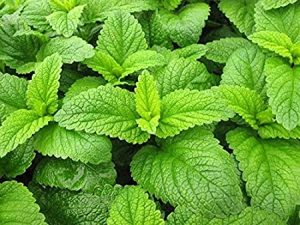
According to older studies, lemon balm extract has antiviral capabilities. Research have also shown that lemon balm helps shield the virus from herpes simplex. They also observed that it was most effective in treating a cold sore with the lemon balm in its early stages. Lemon balm has been shown to decrease the healing time and some of the cold sores symptoms.
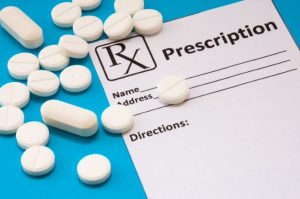
Your doctor may prescribe an antiviral to treat cold sore. Some antivirals come in the form of a tablet or topical lotion, and others are injectable. They can be used to lessen the duration of a severe outbreak or as a precaution against new outbreaks.
It’s essential to initiate antiviral therapy medication as soon as you feel a cold sore coming on, even though blisters have not yet formed, to lower your chances of a major outbreak.
- famciclovir (Famvir)
- penciclovir (Denavir)
- acyclovir (Zovirax)
- valacyclovir (Valtrex)
Seeing as prescription antivirals are potent, and can cause uncommon but undesirable symptoms such as kidney injury, adverse reaction, and hepatitis, they are often restricted for severe cold sore outbreaks or folks with weakened immune systems.
How to Prevent?
Stress and sickness are two main causes of cold sores. When the immune system is weakened, fighting off the viruses is much less likely. By maintaining a healthy diet that includes eating right and regular exercise, you can help prevent cold sore outbreaks. When you have a lot of tension, consider tension management techniques like yoga, meditation, or journaling.
A cold sore is infectious as soon as symptoms start, even though blisters have not emerged. They can even pass to others, even when symptoms do not occur. To prevent the spread of sore virus in cold:
- Avoid sexual contact before the lesion is healed, including kisses and other skin-to-skin contact.
- Share no cosmetics like lipstick, lip balm, or makeup.
- Don’t exchange personal care items like blankets, utensils or razor blades.
- Start replacing your toothbrush to prevent reinfection once you get a cold sore, and replace this after the sore has healed.
- If cold sores are triggered by sunlight, apply sunscreen everyday to the area in which cold sores develop.
- Should not pick from a cold sore, and wash your hands before you apply lotion or contact the sore.

